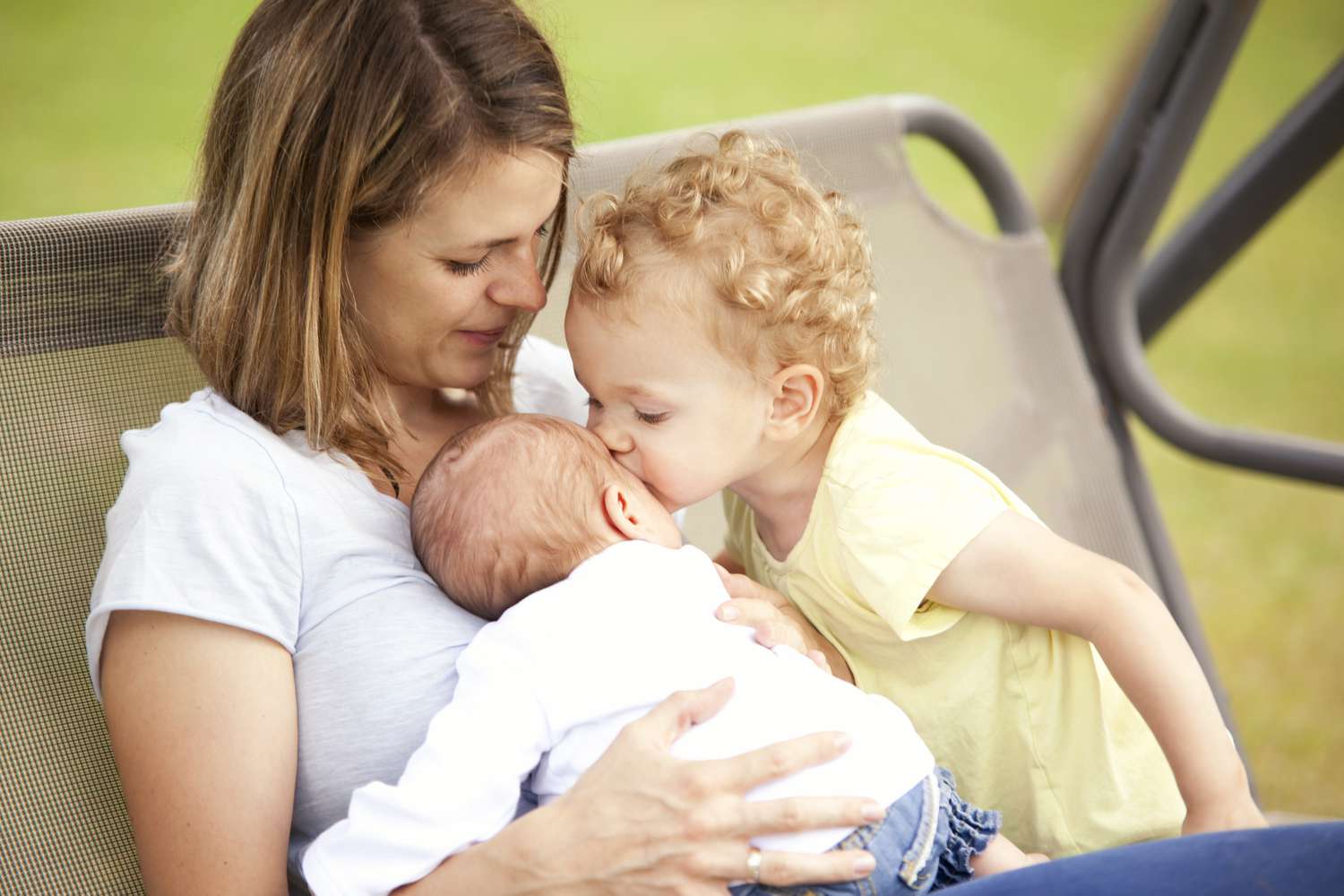Coping Skills: Navigating Parenting After Child Loss
Managing parenting after losing a child is an overwhelming journey, testing your strength and resilience. Understand that grief unfolds uniquely; embrace moments of sorrow, anger, and acceptance. Practice self-compassion, treating yourself kindly in the midst of pain. Seek professional therapy for a crucial space to express and heal. Cultivate resilience by acknowledging challenges and finding silver linings. Honor your child’s memory through special tributes. Communicate openly with your partner for essential support. Handle parenting challenges by prioritizing emotional well-being. Remember, there are coping strategies, self-care tips, and more to guide you through this difficult time.
Key Takeaways
- Prioritize self-compassion to navigate grief and parenting responsibilities.
- Seek professional therapy for healing and healthy coping strategies.
- Establish open communication with your partner for mutual support.
- Build a supportive network for comfort and understanding.
- Embrace moments of joy while honoring your child’s memory.
Understanding Grief and Loss

Exploring the depths of grief and loss can feel like journeying through an unfamiliar terrain, each step laden with emotions that ebb and flow unpredictably. During this challenging time, it’s important to recognize that grief doesn’t follow a linear path; it often unfolds in stages unique to each individual. The healing process is gradual, marked by moments of intense sorrow, anger, denial, and eventually acceptance. While it may seem overwhelming, remember that experiencing these emotions is a natural part of the journey towards healing.
Emotional support plays a vital role in maneuvering through grief. Surround yourself with understanding friends and family who can provide a listening ear or a comforting presence. Don’t hesitate to seek professional help or join support groups where others who’ve walked a similar path can offer empathy and guidance.
Coping strategies such as journaling, mindfulness, or engaging in activities that bring solace can also aid in processing emotions and finding moments of peace during this tumultuous time. Remember, you’re not alone, and it’s okay to lean on others for support.
Practicing Self-Compassion
Starting on the challenging journey of parenting after child loss involves fostering self-compassion as a cornerstone for healing and self-care. It’s essential to allow yourself the space for self-reflection and growth during this difficult time. Be kind to yourself as you navigate the waves of grief and the responsibilities of parenting.
Practicing self-compassion means acknowledging your pain and treating yourself with the same kindness you’d offer a dear friend. It involves forgiving yourself for any perceived shortcomings or mistakes, understanding that you’re doing the best you can in an incredibly tough situation.
Healing is a gradual process, and self-compassion can act as a guiding light on this journey. It allows you to be gentle with yourself as you learn to live with the loss while still being present for your family.
Remember that growth often arises from moments of self-compassion, offering you the strength to move forward one step at a time.
Seeking Professional Support
You may find solace in seeking professional support as you navigate the complexities of parenting after child loss.
Therapy can offer a safe space to process your emotions and begin the healing journey, while counseling can help you cultivate resilience in the face of unimaginable grief.

Therapy for Healing
Consider seeking professional therapy to aid in your healing journey after the loss of a child. Therapy offers numerous benefits that can support you during this difficult time. Through therapy, you can find a safe space to express your emotions, process your grief, and work through the complex feelings that accompany such a profound loss.
A therapist can provide valuable guidance, tools, and coping strategies tailored to your specific needs, helping you navigate the challenges of parenting after child loss. Therapy can also assist you in rebuilding a sense of purpose and meaning in your life, as well as in strengthening your mental and emotional well-being.
By engaging in therapy, you may discover new ways to honor your child’s memory while also taking care of yourself. Remember, healing is a personal journey, and seeking professional support can empower you to move forward with resilience and hope.
Embrace the opportunity to prioritize your healing and well-being through therapy as you navigate this challenging chapter in your life.
Counseling for Resilience
Seek out professional counseling to nurture your resilience in the aftermath of losing a child. Counseling can provide you with coping strategies tailored to your unique situation, helping you navigate the complex emotions and challenges you may be facing.
Through counseling, you can work on rebuilding your emotional well-being and finding ways to cope with your grief in a healthy manner. A counselor trained in grief and loss can offer you a safe space to express your feelings, process your thoughts, and develop effective coping mechanisms.
They can guide you in exploring your emotions, understanding the stages of grief, and learning how to manage the intense feelings that arise. By seeking professional support, you’re taking a proactive step towards healing and building resilience in the face of this profound loss.
Cultivating Resilience and Hope
You’ve been through unimaginable pain, but within you lies the strength to navigate this grief and find a path forward.
By focusing on building your inner resilience, you can slowly start to see the silver linings that gently weave through the darkness.
Embracing the future with cautious hope can be a way to honor your child’s memory while rebuilding your own sense of purpose and joy.

Building Inner Strength
Starting the journey of parenting after child loss involves intentionally fostering resilience and holding onto hope amidst the pain and grief. Building resilience isn’t about avoiding the sorrow but about finding the strength to endure it. It’s about acknowledging the immense challenges you face as a parent who’s experienced loss, yet choosing to move forward each day with courage and determination.
Inner strength development is a gradual process that requires patience and self-compassion. It involves recognizing your own emotional limits and allowing yourself the space to grieve while also nurturing a sense of hope for the future.
Remember, it’s okay to seek support from loved ones or professionals who can help you navigate this difficult path.
As you focus on nurturing your inner strength, try to find moments of peace and solace amidst the chaos. Allow yourself to feel a range of emotions without judgment, knowing that each step you take towards healing is a confirmation of your resilience and unwavering hope for brighter days ahead.
Finding Silver Linings
In the midst of your grief and pain, it’s important to actively cultivate resilience and hope by seeking out silver linings in your journey of parenting after child loss. While the weight of your loss may feel unbearable, finding peace in the small moments can provide solace. Embracing growth through this journey means allowing yourself to acknowledge the pain while also recognizing the strength it has cultivated within you.
As you navigate the complex emotions that come with parenting after child loss, remember that it’s okay to find moments of joy amidst the sorrow. These moments, however fleeting, can be the silver linings that help you carry on. Embracing growth involves honoring your feelings, allowing yourself to heal at your own pace, and seeking support when needed.
Finding peace in the midst of tragedy isn’t about forgetting your loss but about learning to coexist with it while still finding reasons to hope. Embracing growth means acknowledging the depth of your pain while also recognizing the resilience you carry within you.
Embracing Future Possibilities
How can you embrace future possibilities while cultivating resilience and hope in the journey of parenting after child loss?
It’s understandable to feel overwhelmed by the weight of grief, but within that grief lies the potential for new beginnings and a positive outlook. As you navigate this challenging path, remember to hold onto your future aspirations and the life opportunities that still await you.
Embracing future possibilities involves allowing yourself to dream again, to envision a life that includes joy and fulfillment despite the pain of loss. It means acknowledging the past while actively seeking out moments of happiness and growth in the present. By focusing on the potential for new beginnings, you can gradually shift your perspective towards hope and healing.
Cultivating resilience is about recognizing your own strength and capacity to endure, even in the face of unimaginable loss. It’s about finding the courage to take small steps forward and trusting that brighter days lie ahead. Remember, it’s okay to seek support and lean on others during this journey. Together, you can embrace future possibilities with a newfound sense of purpose and determination.
Honoring Your Child’s Memory

To honor your child’s memory after loss, consider creating a special tribute that reflects their unique personality and significance in your life. Memorial activities, remembrance rituals, legacy projects, and tribute events can all serve as meaningful ways to keep your child’s memory alive and honor the impact they had on your life. Engaging in these activities can provide comfort and a sense of connection to your child, allowing you to cherish the moments you shared together.
Creating a legacy project in your child’s name, organizing tribute events on significant dates, or participating in remembrance rituals can help you navigate the grieving process while celebrating your child’s life. These actions can be healing and cathartic, allowing you to express your love and keep their memory close to your heart.
Remember that there’s no right or wrong way to honor your child’s memory; do what feels most meaningful and comforting to you as you navigate this difficult journey.
Communicating With Your Partner
When maneuvering through the challenges of parenting after child loss, open and honest communication with your partner becomes a vital lifeline for mutual support and understanding. Partner support is pivotal during this time of shared grief. The emotional processing of losing a child can be overwhelming, and having your partner by your side to share in this journey can provide immense comfort.
In traveling this difficult path together, remember that both you and your partner may cope differently. It’s imperative to communicate your coping strategies openly and respectfully. Acknowledge that each of you may have unique ways of grieving and processing emotions.
Create a safe space for each other to express feelings without judgment. Share your thoughts, fears, and hopes with one another. Lean on your partner for support, and offer the same in return.
Managing Parenting Challenges
Managing the myriad of parenting challenges after experiencing child loss can be an emotionally overwhelming and complex journey. It’s vital to prioritize your emotional well-being as you navigate this difficult path. Remember, it’s important to seek support and take care of yourself while caring for your family.
When facing parenting challenges after the loss of a child, consider implementing various parenting strategies to help cope with the situation. Setting boundaries, maintaining open communication with your children, and creating a routine can provide stability during this tumultuous time. Additionally, practicing self-compassion and allowing yourself to grieve are critical aspects of managing these challenges.
Creating a Supportive Network

Establishing a strong support network is crucial as you navigate the challenges of parenting after experiencing the loss of a child. Surrounding yourself with supportive friendships can provide a source of comfort and understanding during this difficult time. These friends can offer a listening ear, a shoulder to lean on, and a sense of companionship that’s invaluable in your healing journey.
Online communities can also be a great resource for connecting with others who’ve gone through similar experiences. These virtual spaces offer a sense of belonging and the opportunity to share your feelings openly with a community that truly understands.
In addition to individual support, consider the benefits of group therapy. Participating in group sessions can help you process your grief in a safe and supportive environment while connecting with others facing similar struggles.
Family gatherings can also provide a sense of togetherness and support, allowing you to lean on your loved ones for strength and comfort. Remember, building a supportive network is essential in helping you navigate the complexities of parenting after loss.
Prioritizing Self-Care Activities
Prioritizing self-care activities is essential for your well-being as you navigate the challenges of parenting after the loss of a child. Taking time for self-reflection allows you to process your emotions and thoughts, helping you to better understand your needs during this difficult time.
Establishing daily rituals can provide a sense of structure and comfort in the midst of chaos, offering moments of stability and peace.
Engaging in mindful activities such as meditation or gentle yoga can help ground you in the present moment, easing feelings of anxiety and grief. These practices can serve as emotional outlets, allowing you to express and release pent-up emotions in a healthy way.
Remember, it’s okay to prioritize yourself and your needs as you navigate this journey of healing and resilience.
Whether it’s journaling your thoughts, taking a quiet walk in nature, or simply allowing yourself to rest, make self-care a non-negotiable part of your routine. By caring for yourself, you’re better equipped to care for those around you.
Embracing Moments of Joy

Take time to savor and cherish the small moments of joy that unexpectedly brighten your day as you navigate the complexities of parenting after the loss of a child. Finding happiness in the midst of grief may seem challenging, but it’s essential for your well-being.
Embracing positivity doesn’t mean forgetting your loss but rather acknowledging that joy can coexist with sorrow. Celebrating milestones, no matter how small, can help you create new memories while cherishing the ones you hold dear.
In this journey of healing, allow yourself to smile when you catch a glimpse of your child’s favorite toy, or when you hear their laughter in a passing moment. These instances may bring tears, but they also carry a sense of warmth that can provide comfort.
Embracing moments of joy doesn’t diminish your grief; instead, it honors your love for your child by allowing happiness to bloom amidst the pain. Be gentle with yourself as you navigate this path, and remember that finding joy is a validation of the enduring love you hold for your child.
Frequently Asked Questions
How Can I Handle Triggers in Everyday Situations?
You can manage triggers by identifying them, practicing self-care, and using coping strategies like deep breathing or mindfulness. Seeking support through therapy or support groups can provide guidance and comfort during these challenging times.
Is It Normal to Feel Guilty for Finding Happiness?
Feeling guilty for finding happiness after loss is a common emotion. Remember, managing emotions is key. Be kind to yourself. Engage in self-care practices that bring solace and peace. You deserve moments of joy amidst sorrow.
What Are Some Ways to Include My Child in Family Traditions?
To keep your child’s memory alive in family traditions, try memory rituals like lighting a candle or sharing stories. Include their favorite activities in celebrations to honor their presence and keep their spirit alive.
How Do I Navigate Social Events and Interactions After Loss?
Getting through social events after loss can be difficult. Remember to prioritize self-care strategies and lean on support groups. Setting boundaries is essential, and seeking therapy can provide a safe space to process your emotions and experiences.
Can I Still Be a Good Parent While Grieving?
You can absolutely still be a good parent while grieving. By practicing self-care strategies, joining support groups, effectively communicating your feelings, and setting boundaries when needed, you can navigate the challenges of parenting with compassion and strength.
Conclusion
Remember, managing parenting after the loss of a child is an incredibly difficult journey. Be kind to yourself, seek help when needed, and hold onto hope for brighter days ahead. You aren’t alone in your grief, and it’s okay to feel a range of emotions.
Keep honoring your child’s memory, finding moments of joy, and taking care of yourself. You’re strong, resilient, and deserving of love and support during this challenging time.

Hey there! 👋 I’m a proud mom and passionate writer, sharing my parenting journey. 📝 Join me as I navigate the ups and downs of motherhood, offering tips, advice, and a sprinkle of humor along the way. 🌟







